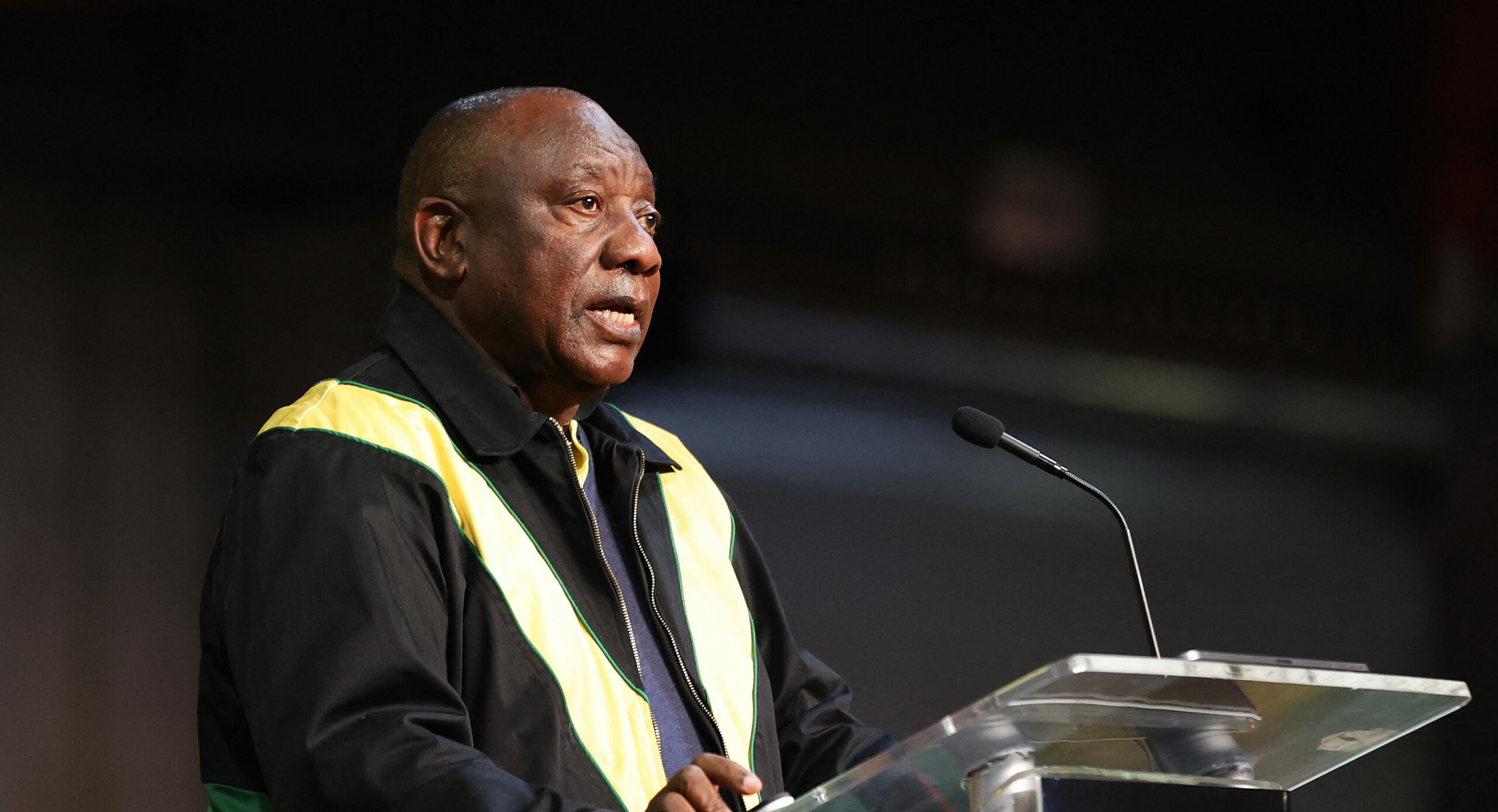South Africa is heading into a period of intense political wrangling. The ruling ANC party has scheduled its national electoral conference for 16-20 December at the Johannesburg Expo Centre, during which members are due to select party delegates and officials, including the president.
This assessment was issued to clients of Dragonfly’s Security Intelligence & Analysis Service (SIAS) on 8 September 2022.
We assess that the months running up to and immediately after the conference will be characterised by factional infighting and occasional bouts of protests. But with President Cyril Ramaphosa likely to gain re-election, the knock-on effects on the wider operational environment will probably be limited.
Factional battles within the ANC in recent years have included subversive tactics by party officials and activists associated with former president Jacob Zuma. These will probably intensify over the coming months. These factions have sought to oust or replace officials aligned with President Ramaphosa, and weaken his position. Specifically, their tactics include organising anti-government protests, pursuing allegations against Ramaphosa, and more seriously, violently intimidating or even murdering local party officials.
These tactics are unlikely to directly affect commercial operations in South Africa; they are for the most part used against rival party members. But actions associated with ANC infighting will almost certainly attract negative local, regional and international press coverage, leading to a weakening of investor confidence, particularly around the country’s ability to contain protests or pursue criminal investigations into high-level corruption.
Media organisations and reporters involved in covering the elections are likely to face heightened scrutiny by ANC members into early 2023. For example, on 5 September Zuma launched a private prosecution against a South African journalist who allegedly published a leaked medical report, which the former president’s legal team has claimed influenced a judicial decision on his medical parole. The South African National Editors’ Forum has criticised this move as an effort to ‘intimidate’ journalists.
Small disruptive protests as factions vie for votes
Rival ANC factions are likely to organise frequent protests ahead of the electoral conference. These will probably be led by an array of current or even suspended members and leaders of sub-organisations, such as the ANC women’s league, who will be seeking media and political attention to boost their chances of getting nominations. Holding anti-government protests in ANC constituencies is an established way for them to get that. These are most likely to occur on the periphery of urban centres in Kwa-Zulu Natal, Gauteng and the Eastern Cape, our analysis of data from ACLED suggests.

There is some potential for violence in the immediate vicinity of these. The precedent suggests that this would begin with small groups of protesters blocking roads. Outside of city centres such protests have turned into localised rioting, with targeted looting of small African businesses and police intervening to disperse protesters using tear gas. But the organisers and instigators tend to only have localised support networks, so we assess there is a low likelihood of protests in ANC constituencies leading to widespread riots.
Targeted killings of local activists
Serious election-related violence will probably escalate but remain targeted towards people linked to the ANC. Since September last year at least nine ANC officials in Kwa-Zulu Natal have been murdered. Typically, thugs are hired by local rivals to intimidate ANC councillors and assassinate them. Assailants usually shoot the targets in their homes, according to an international research institute. Based on local media reporting and our analysis of the ACLED data over 2021, Kwa-Zulu Natal, Eastern Cape and Mpumalanga have the highest incidence of ANC-linked political violence.
Re-electing Ramaphosa (or not?)
We forecast that Ramaphosa will most likely be re-elected as ANC president. Party members will elect the 80 national executive committee members along with the ‘top six’ positions in the party, including the president (of both state and party). These are selected from a nomination list, which is due to be released in November. In a sign that Ramaphosa and his supporters continue to dominate the party, six out of nine elected regional ANC chairpersons seem to align with him (Free State is yet to hold regional elections).
There is a reasonable chance that members of Ramaphosa’s faction will not be re-elected for key ANC leadership positions in December. That is even though influential regional chairpersons are likely to wield influence over branch nominations for other positions. The Zuma-aligned faction performed strongly in the Kwa-Zulu Natal election in July. Factors that go against Ramaphosa include voter fatigue among moderate ANC members and ordinary ANC voters seem to blame the president for the rising cost of living and his government’s failure to tackle unemployment.
In our analysis, the following developments would indicate that Ramaphosa’s faction is increasingly likely to lose:
- An ANC decision to include on ballots influential Zuma allies who are currently ineligible for election
- Major trade unions publicly aligning with the Zuma faction due to rising living costs
- Public statements by national and local ANC leaders that seek to foment unrest due to perceived government failures
There is a reasonably high chance of a peaceful transition if the Zuma faction wins a majority on the ANC leadership board in December, based on precedent. However, official investigations into corruption and political violence suggest that senior ANC affiliates have orchestrated localised violence in recent years, notably the 2021 mass riots. It is likely the Zuma faction will continue to use similar tactics to pressure the ANC into certain policy decisions or to force the state to stall criminal charges; these are highly likely to undermine any government under Ramaphosa unless criminal cases against ANC members are pursued.
Still, in the scenario where the Ramaphosa faction is severely weakened in the ANC, we doubt that Ramaphosa himself would be removed as state president before the general election in 2024. Polls show that while public confidence in the ANC is low, Ramaphosa’s pro-business approach has broad appeal; with him in the presidency, the ANC would be likely to retain the largest proportion of parliamentary seats in the upcoming elections. This signals that business-as-usual will probably return after the election, even if there are persistent attempts to introduce policies associated with the Zuma faction thereafter.
Image: South Africa’s President Cyril Ramaphosa addresses African National Congress (ANC) members at the National Recreation Center (Nasrec) in Johannesburg on 31 July 2022 during the last day of the party’s National Policy Conference. Photo by Phill Magakoe/AFP via Getty Images.







